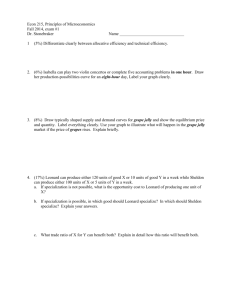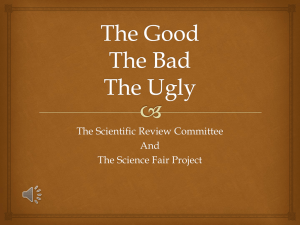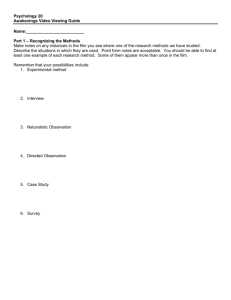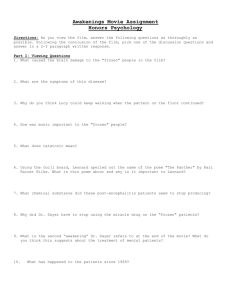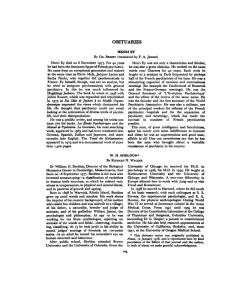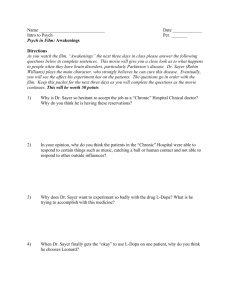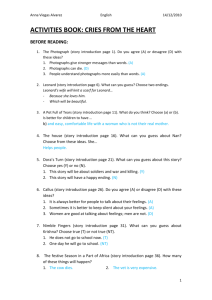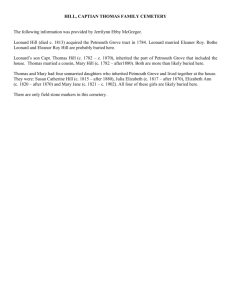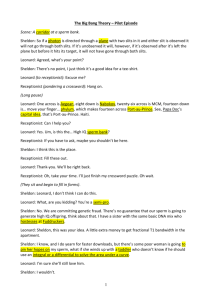Rewarding Yourself for Good Behavior
advertisement
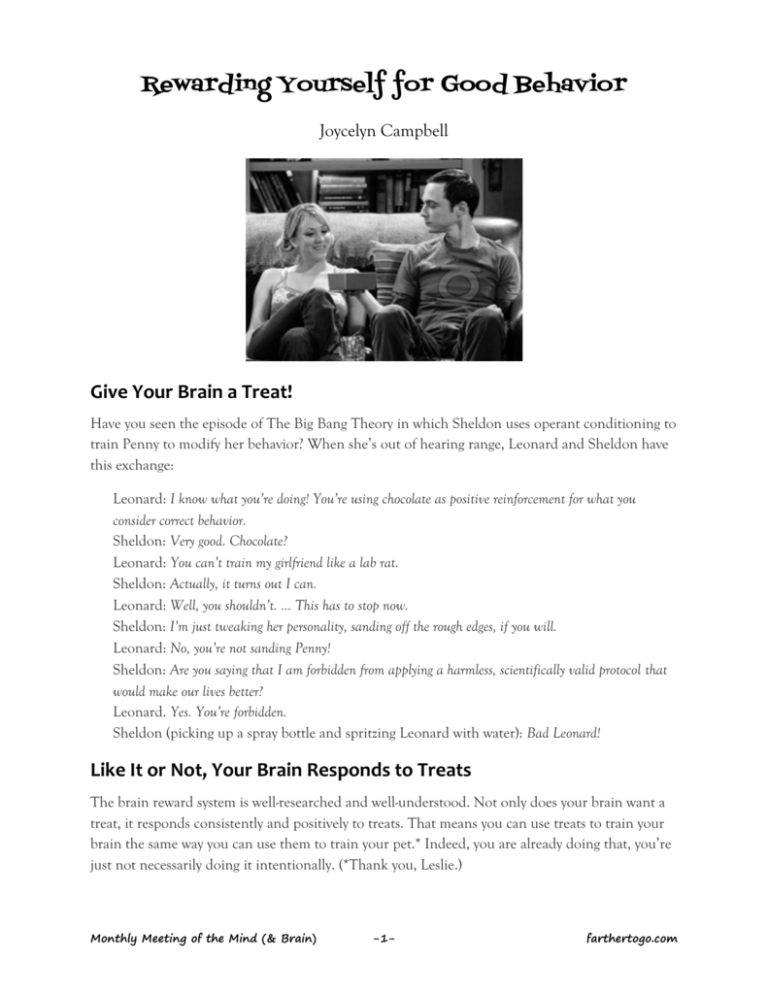
Rewarding Yourself for Good Behavior Joycelyn Campbell Give Your Brain a Treat! Have you seen the episode of The Big Bang Theory in which Sheldon uses operant conditioning to train Penny to modify her behavior? When she’s out of hearing range, Leonard and Sheldon have this exchange: Leonard: I know what you’re doing! You’re using chocolate as positive reinforcement for what you consider correct behavior. Sheldon: Very good. Chocolate? Leonard: You can’t train my girlfriend like a lab rat. Sheldon: Actually, it turns out I can. Leonard: Well, you shouldn’t. … This has to stop now. Sheldon: I’m just tweaking her personality, sanding off the rough edges, if you will. Leonard: No, you’re not sanding Penny! Sheldon: Are you saying that I am forbidden from applying a harmless, scientifically valid protocol that would make our lives better? Leonard. Yes. You’re forbidden. Sheldon (picking up a spray bottle and spritzing Leonard with water): Bad Leonard! Like It or Not, Your Brain Responds to Treats The brain reward system is well-researched and well-understood. Not only does your brain want a treat, it responds consistently and positively to treats. That means you can use treats to train your brain the same way you can use them to train your pet.* Indeed, you are already doing that, you’re just not necessarily doing it intentionally. (*Thank you, Leslie.) Monthly Meeting of the Mind (& Brain) -1- farthertogo.com In any case, treats are good, right? You’d think using them to train our brains to do what we want them to do would be, well, a piece of cake. But if you thought that, you’d be wrong. In fact resistance to identifying and incorporating rewards is perhaps the biggest obstacle people face when trying to change behavior. They forbid themselves from applying a harmless, scientifically valid protocol that would make their lives better. The most common explanation I hear from people is that they shouldn’t have to use rewards to do the right thing. It’s as if using a reward somehow constitutes cheating. They believe they should be able to do it on their own—which really means they should be able to do it using System 2, the conscious part of the brain. They should have enough System 2 will power or self-control so that they don’t need to reward themselves. So if they can’t do it on their own, they figure maybe they need to be motivated (which might explain the surge in the number of motivational speakers). Or maybe the time just isn’t right or they’re not ready. Because when they’re ready, they’ll just do it. But will power and self-control are limited resources that are easily depleted and therefore relatively useless over the long haul. So when someone takes this position, it amounts to taking a stand for not getting what they want. Of course this is a de facto position, not a position anyone takes consciously or intentionally. But it’s troublesome for a couple of reasons, the most obvious one being that it’s a set-up for failure. The other problem is the accompanying self-judgment and negative self-talk. Usually when someone begins the process of trying to change behavior believing they “should” be able to do it, they have already prejudged themselves as lacking. They are already wrong or weak—at least in their own minds—because they should already have a handle on this. And when they fail to muster up enough will power, self-control, or dogged persistence to whip themselves into shape, they’re only going to feel worse about themselves, not better. Bad Leonard! What often follows is a round of self-flagellation, soul-searching, or grasping for some kind of explanation as to why they were not successful. To be sure, there could be multiple factors involved, but the refusal to incorporate rewards into the process, if not a direct cause of failure, will almost always be a major contributing factor. We may or may not be comfortable with the idea that we have essentially the same brain our ancestors on the savanna had. But that’s the brain we have. If we don’t learn how to use it to create what we want, it (System 1) will continue to go after what it wants. And System 1 is a lot faster and more immediately compelling than System 2 is. Your brain’s reward system is going to operate with or without your consent or input. So one of the smartest things you can do for yourself is to discover what kinds of treats your brain responds to and then go ahead and use those treats to make your life better. Monthly Meeting of the Mind (& Brain) -2- farthertogo.com

